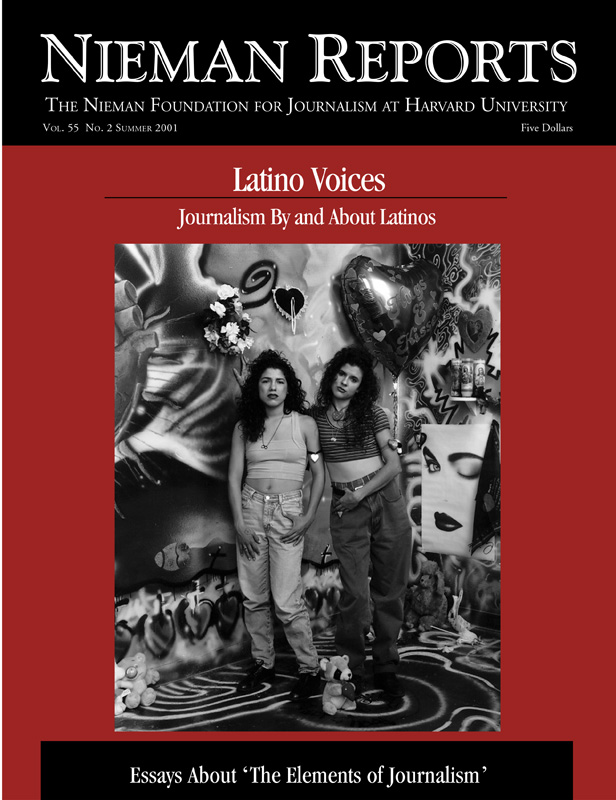“Honest and fair dealing will win in the long run.”
Charles H. Taylor, founder of The Boston Globe, laid down this journalistic cornerstone in 1873. He meant it to apply to coverage of elections, but as time passed it became part of the newspaper’s creed. The words are carved in stone in the lobby of the Globe building. Through five generations during which the Taylor family published the Globe, the founder’s words were printed on the editorial page.
More than a century later, this idea of “fair dealing”—what we now call fairness—is a concept that journalists and news organizations recognize as a core value of their enterprise. When what a newspaper publishes is perceived by the public to be fair, then its coverage will be regarded as credible. These two values walk hand in hand.
Late in 1999, William O. Taylor, chairman emeritus of The Boston Globe, and some of his associates from the newspaper, including Tom Winship, its former editor, and David Nyhan, a long-time columnist, began talking about an idea that Nyhan had put forward. He urged the Taylor family to consider establishing a prize for journalism that demonstrates a commitment to fairness and responsibility. [See the article about fairness by David Nyhan on page 79.]
From those discussions, the Taylor Family Award for Fairness emerged. To Bill Taylor and his family, it is an opportunity to focus public attention on an exemplary example of journalism that meets the highest standards of fairness. “The First Amendment guarantees a free press. But a free press also must be a responsible press, and a responsible press is one that tries to be fair, both to individuals and institutions in the news,” Taylor says. “As journalists carry out their first obligation to seek the truth, they must do so in a spirit of fairness.”
Bill Taylor has raised more than $450,000 from members of his family to endow an annual prize of $10,000. The first Taylor Fairness Award will be given in 2002, based on work published in daily newspapers during 2001. Deadline for submissions is February 2, 2002.
When he was Nieman Curator, Bill Kovach joined in talks about this award for fairness and agreed that the Nieman Foundation would be an appropriate home for the administration of the award. In fact, it is an ideal home given that the Nieman Foundation’s mission is “…to promote and elevate the standards of journalism.”
Members of the Taylor family have been firm in their insistence that no member of the family and no present or former journalist at the Globe should participate in the process of selecting a winner. The winner will be selected by a Fairness Award jury which will consider nominations from a panel of 31 journalists. The nominating panel is a diverse group and includes many who have written about fairness and credibility or have participated in news industry examinations of these topics.
Nominators will recommend efforts that in their judgment meet the highest standards of fairness. The award jury will then consider all aspects of the journalistic process in selecting the winner: reporting, writing, editing, headlines, photographs, illustrations and presentation. Nominators may recommend a single story or editorial or commentary, a series of stories or editorials or commentaries, or a body of work by an individual journalist. The award can go to an individual journalist or to a newspaper or wire service. We recognize that when all aspects of the journalistic process are evaluated, including editing, headline writing and presentation, many members of a news staff will have been involved. Once work is nominated, a newspaper will be asked to identify each of the journalists who made significant contributions to the story or stories.
There is no definition of fairness in the guidelines for Taylor Fairness Award nominations. This is deliberate. The standards for fairness in journalism are complex and diverse and not easily defined for this kind of journalism competition. In fact, we anticipate there will be many ways to define work that can be held up as exemplary examples of fairness.
The nominators will apply their own standards of fairness in newspaper work and provide a rationale for these standards on the nominating form. Over time, we expect to build a valuable base of knowledge about how fairness is perceived by leading journalists. And we will work to distribute this collection as a resource to help both journalists and members of the public understand the broad and serious attention dedicated to fairness in newspaper journalism. Our Web site (www.nieman.harvard.edu) will become an interactive center in sharing what we learn from those who nominate work because of its fairness. We will post leading entries for the award and invite reaction and comment from journalists and the public.
At a time when the public questions the fairness of the press, this award will not only shine a spotlight on exemplary efforts of fair coverage but will also provide a window through which all of us can witness how this core value of journalism is practiced and perceived.



